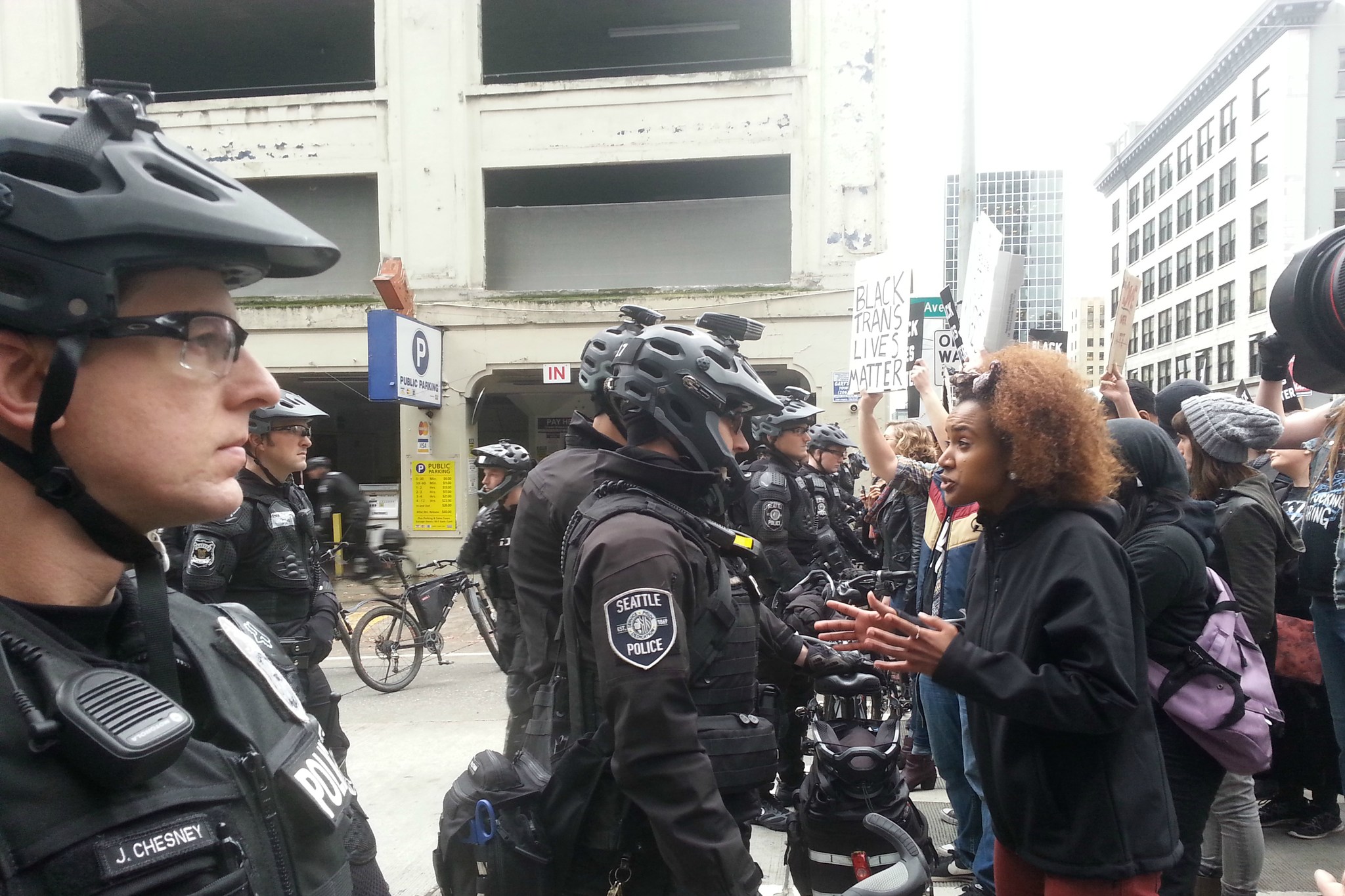This morning in the federal Western District Court of Washington, city attorney Pete Holmes asked Judge James Robart, who is supervising Seattle’s consent decree with the Department of Justice, to intervene in an unfair labor practice claim filed in October by the Seattle Police Management Association (SPMA, the union for higher-ranking police) with the state Public Employee Relations Commission (PERC). Holmes called the claim a “direct run” at reforms that could “undo all of the city’s accountability work since May 2016.”
Holmes was alone in this request. Mike Diaz of the Justice Department, Hillary McClure for the Seattle Police Officer’s Guild (SPOG, which represents rank and file cops) and Lisa Daugaard of the Community Police Commission all disagreed with the city’s position and warned that judicial interference in SPMA’s unfair labor practice complaint could, in Daugaard’s words, “introduce the specter of delay and later challenge” to police reform efforts in Seattle, which have been ongoing since 2012. Diaz asked Robart to “keep on keeping on” and not intervene until and unless the complaint “ripens” into a real conflict with the consent decree.
Robart agreed with the latter group and declined Holmes’ request. “Upholding civil rights doesn’t involve automatically curtailing bargaining rights,” he said, so the court will keep its nose out of the PERC complaint for the time being. “We don’t know what’s going to happen,” he said. The judge also lauded improvements made under the “enlightened leadership” of Chief Kathleen O’Toole in the areas of use of force, crisis intervention, stops and detention, bias free policing, and supervision.
“The court sees a light at the end of the tunnel” of the consent decree process, Robart said, before reiterating a threat he’s made previously: “The court will not allow the people of Seattle…to be held hostage by the collective bargaining process.” Crosscut’s David Kroman has deeper dive into the background behind today’s status update here.








